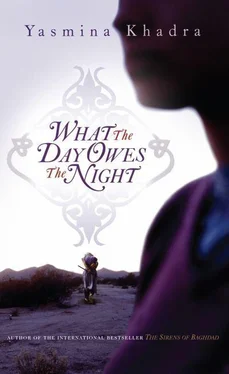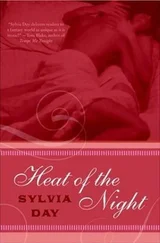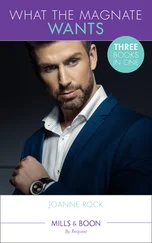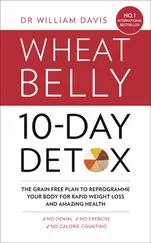‘What about Jelloul? What’s happened to him? I know he was a captain in the Algerian army and that he was in charge of a military sector in the Sahara, but I haven’t had any news of him for a couple of years now.’
‘By the time he retired in 1990 he was a colonel. He never did live in Río Salado; he bought a little villa in Oran where he planned to live out his days. But then the riots started. A terrorist from the Armed Islamic Group gunned him down outside his own house, shot him with a single bullet while he was sitting daydreaming on his porch.’
André started, suddenly sober.
‘Jelloul is dead?’
‘Yes.’
‘Killed by a terrorist?’
‘By an emirin the AIG. And wait till you hear this, Dédé: it was his own nephew.’
‘Jelloul was killed by his own nephew?’
‘You heard what I said.’
‘My God, there’s a terrible irony there.’
Fabrice Scamaroni doesn’t arrive until late in the evening because of the railway strike. The round of hugs and handshakes strikes up again. Fabrice and I have never lost touch. He is an important journalist and a successful writer. I often see him on television. He regularly comes back to Algeria on assignments for his paper and always makes the most of it and comes down to Río Salado. He stays at my house. Every time he visits, rain or snow, he and I get up early in the morning and go to the Christian cemetery to visit his father’s grave. His mother died during the 1970s when a cruise ship sank off the coast of Sardinia.
The table by now is strewn with wine bottles. We have resurrected our dead and drunk to their memory; asked after the living: what became of so-and-so, why did he decide to go and live in Argentina, why did so-and-so move to Morocco? André is drunk as a lord, but he’s holding up well. Bruno and Gustave keep running from the garden to the bathroom. I keep glancing towards the gate.
One person is still missing: Jean-Christophe Lamy.
I know that he’s still alive, that he and Isabelle have been running a thriving business on the Côte d’Azur. Why isn’t he here? Nice is barely a couple of hours by car from Aix. André made it here from Bastia, Bruno from Perpignan, Krimo from Spain, Fabrice from Paris, Gustave from Saôneet-Loire. Is Jean-Christophe still angry with me? What did I do to him? In retrospect, nothing . . . I didn’t do anything. I loved him like a brother, and like a brother I wept for him when he left, trailing the dust of a generation on his heels.
‘Earth to Jonas!’ Bruno shakes my shoulder.
‘What?’
‘What are you dreaming about? I’ve been talking to you for five minutes.’
‘I’m sorry . . . you were saying?’
‘I was talking about the old country. I was saying that we were orphaned by our country.’
‘And I was orphaned by my friends – I don’t know which of us lost more, but it doesn’t matter, it takes the same toll on the heart.’
‘I don’t really think you lost more than we did on the deal, Jonas.’
‘ C’est la vie,’ André says philosophically. ‘Life gives with one hand and takes away with the other. But it’s not the same, it’s not the same thing at all . . . losing your friends or losing your country. It eats me up inside just thinking about it. If you want proof, round here we don’t talk about nostalgia, we say nost-algeria.’
He takes a deep breath, his eyes glittering in the lamplight.
‘Algeria still clings to me,’ he confesses. ‘Sometimes it burns like the Tunic of Nessus, sometimes it envelops me like a delicate perfume. I’ve tried to shake it off, but I can’t. How can I forget it? I’ve tried to stop thinking about my youth, to move on, to start with a clean slate. I can’t. I’ve tried to summon all the horrors, to spew them out, to be rid of them once and for all, but it’s no use . . . The memories of the sun, the beaches, the streets, the food we ate, the glorious drunken nights we spent together, the happy times always overshadow the rage, and though I start out snarling I find myself smiling. I’ve never forgotten Río Salado, Jonas. Not for a day, not for a second. I remember every tuft of grass on our hill, every witty remark on the café terraces, and Simon’s jokes and antics even overshadow his death, as though he was determined not to let us associate his tragic death with our dreams of Algeria. I swear, I’ve tried to forget them. More than anything, I have wanted to rip out every memory with a pair of pliers, like pulling out a rotten tooth. I’ve been all over the world, to Latin America, to Asia, to try to get some distance, to reinvent myself somewhere else. I needed to prove to myself that there were other countries, that a homeland can be rebuilt like a new family; but it’s not true. I only have to stop for a second and the bledseeps back into me; I only have to turn around to see it, there where my shadow should be.’
‘If we’d left of our own free will that would be one thing,’ protests Gustave, who is two sips from alcoholic poisoning. ‘But we were forced to leave everything, to run away, our suitcases filled with ghosts and grief. Everything was taken from us, even our souls. We were left with nothing, with less than nothing, not even eyes to weep with. It wasn’t fair, Jonas. Not everyone was a colonist, not everyone went round slapping a riding crop against their aristocratic boots; some of us didn’t have any boots at all. We had our own poor, our own poor neighbourhoods, our own dispossessed, our own good Samaritans, we had small craftsmen who were smaller than yours, and more often than not we prayed the same prayers. Why were we all treated as an indiscriminate mass? Why did we have to be lumped together with a handful of feudal lords? Why were we made to feel like outsiders in a country where our fathers and our grandfathers and our great-grandfathers were born? Why were we made to feel like usurpers in a country we built with our own hands and watered with our sweat, our blood? For as long as we don’t know the answer, the wound will never heal . . .’
The direction the conversation is taking unsettles me. Krimo is already knocking back one glass after another; I’m worried that he will start in on the exchange we had in the graveyard.
‘You know, Jonas . . .’ he says suddenly; it is the first thing he has said to me since our encounter in the graveyard. ‘I really want Algeria to come through this all right.’
‘It’ll come through,’ says Fabrice. ‘Algeria is dormant El Dorado. All it needs is a soul. Right now, it’s searching for that soul in all the wrong places, so it’s hardly surprising that it’s a tragedy. But it’s a young country, it has time to grow.’
Bruno grasps my hand and squeezes it hard.
‘I’d like to go back to Río Salado, even if only for a couple of days.’
‘Who’s stopping you?’ says André. ‘There are flights to Oran and Tlemcen every day. In an hour and a half you can be up to your neck in shit.’
We laugh loud enough to wake the whole neighbourhood.
‘Seriously,’ says Bruno.
‘Seriously what?’ I say. ‘Dédé’s right. You can jump on a plane and in less than two hours you can be home, for a day or for ever. Río Salado hasn’t changed much. Oh, it’s a bit more depressing than it was: the flowers have withered, the wine cellars are gone and the vineyards have all disappeared, but the people there are wonderful and charming. If you come to visit me, you’ll have to visit everyone else, and eternity will not be long enough.’
Michel drives me back to my hotel shortly after midnight and walks me up to my room, where he gives me a small metal case locked with a padlock.
‘A few days before she died, my mother asked me to give this to you personally. If you hadn’t come, I would have had to make a trip to Río Salado.’
Читать дальше












